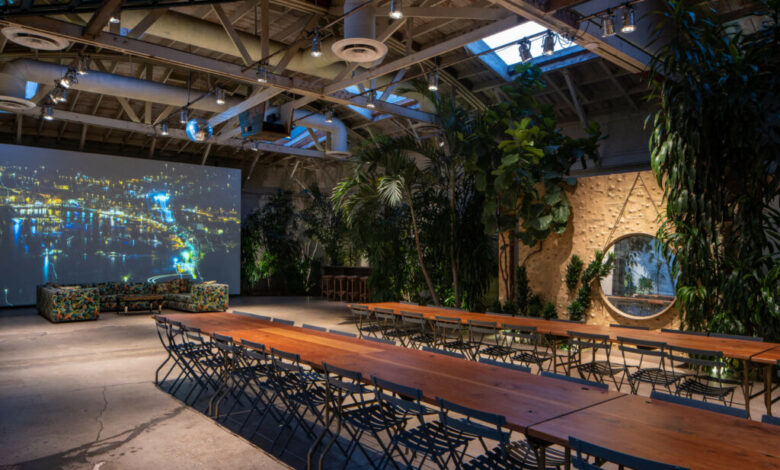What Production Teams Should Know Before Booking a Los Angeles Venue

Los Angeles is a global hub for content creation, offering a seemingly endless selection of venues for film, television, digital campaigns, and branded activations. But for production teams, the abundance of choices can be both a blessing and a logistical challenge. Finding the right venue isn’t just about visual appeal—it’s about functionality, compliance, access, and compatibility with your production’s specific needs.
Before you book, it’s critical to evaluate how well a space supports the realities of your shoot. This article covers key factors that production managers, location scouts, and creative directors should consider when sourcing LA venues, especially those in the industrial category.
Confirm Zoning and Usage Permissions
Not all venues in Los Angeles are cleared for commercial filming. Zoning restrictions vary across neighborhoods, and using a residential or improperly permitted space can create delays—or worse, legal issues.
Buttercup only lists Los Angeles venues that are appropriately zoned for commercial production use, minimizing risk and streamlining permitting processes.
Know Your Load-In Requirements
Your venue should match your shoot’s logistical footprint. Before booking, determine:
- Will you need roll-up door access for vehicles or large equipment?
- Are there freight elevators, or is everything ground-level?
- Is parking available for crew trucks, talent, and vendor teams?
Industrial film locations typically accommodate these requirements, making them ideal for high-volume or gear-heavy productions.
Evaluate Power and Technical Infrastructure
Commercial productions require significant electrical capacity. Evaluate whether the venue has:
- At least 200 amps of power
- Tie-in access or on-site distro panels
- Multiple circuits across the space
These are baseline requirements for lighting setups, monitors, and live playback systems.
Understand the Layout and Adaptability
Consider how the venue supports different departments:
- Is there space for hair and makeup?
- Are there separate areas for client viewing or talent holding?
- Does the floor plan allow for easy movement between departments?
A venue’s visual appeal means little if it limits operational flow on set. Many LA venues have open-plan industrial spaces that provide both design flexibility and departmental separation.
Lighting Conditions and Control
Daylight can be both a gift and a complication. Ask:
- Can natural light be controlled or blacked out?
- Are there skylights or glass walls?
- Is the venue pre-lit, or will lighting rigs be necessary?
Control over lighting conditions is essential for maintaining continuity during long shoot days.
Sound Considerations
Unless explicitly stated, don’t assume a venue is soundproof. Check for:
- Nearby construction or traffic noise
- Echo-prone surfaces or ceilings
- Potential interference from HVAC or neighboring units
For audio-sensitive shoots like interviews or music content, this can affect your choice of location.
Internet and Connectivity
Modern productions often require:
- Wi-Fi or hardline internet for remote reviews
- Streaming setups for live events
- File transfers or cloud-based collaboration tools
If the venue doesn’t offer adequate bandwidth, this will need to be supplemented—possibly at a cost.
Legal, Insurance, and Access Terms
Every reputable venue should provide:
- A clear rental agreement outlining use terms
- Requirements for a Certificate of Insurance (COI)
- Defined hours of access, including early arrival for setup
Buttercup’s curated Los Angeles venues all adhere to these standards, simplifying legal and compliance reviews.
Think Ahead to Post-Production and Marketing
The best venues serve not only your shoot, but your content pipeline. Think about:
- Will the location photograph well for behind-the-scenes marketing?
- Does it offer visual variety for capturing multiple content formats?
- Is there space to capture B-roll or social assets concurrently?
Choosing a visually and operationally versatile venue increases content value beyond the shoot itself.
Conclusion
Booking a venue in Los Angeles is more than an aesthetic decision—it’s a technical, logistical, and strategic one. By evaluating the full spectrum of production requirements in advance, you ensure a smoother day-of experience and a more successful end product.
Make your next booking decision with production logic—not just a mood board.